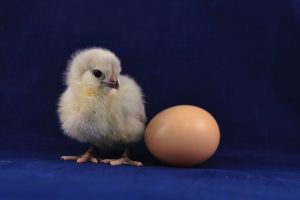Egg Binding Copy
Egg Binding

Egg binding refers to a common and potentially serious condition where a female bird is unable to pass an egg that may be stuck near the cloaca, or further inside the reproductive tract. Even though egg binding can occur in any female bird, it is most common in smaller birds such as lovebirds, cockatiels, budgies and finches. Eggs can potentially break inside the bird which can lead to infection and more seriously death. Sometimes the bound egg may be gently massaged out but if this fails it may become necessary for a vet to break the egg inside and remove it in pieces. If broken, the oviduct should be cleaned of shell fragments and egg residue to avoid damage or infection.
Causes
Low Calcium Levels can also cause egg binding. Supplementing the breeding hen with a diet rich in calcium and Vitamin D is an important factor in preventing this problem. Provide a dish filled with crushed egg shell (from boiled eggs to kill any bacteria) and/or attach a calcium / mineral block to the cage.
In areas where access to natural sunlight is limited (such as in the northern hemisphere during the winter months), full-spectrum lamps can be used to provide UVA and UVB rays.
Malnutrition caused by seed-only or low-protein diets. Recommendations for bird diet / bird nutrition.
Sedentary lifestyle: Often the case when birds are kept in enclosures / cages that are too small for them. The lack of exercise causes poorly developed muscles and obesity.
At particular risk are sick and old birds.
Pet birds can also develop this problem, as birds don’t need a mate to lay eggs. (Obviously, solitary egg-laying females won’t produce fertile eggs.
Symptoms
Loss of appetite, depression, abdominal straining, and sitting fluffed on the bottom of the cage. Some hens may pass large wet droppings while others may not pass any droppings due to the egg’s interfering with normal defecation.
If you suspect that your bird is egg-bound, she should be seen by a vet immediately. The veterinarian may be able to feel the egg in the bird’s abdomen. An x-ray may be necessary to confirm the diagnosis. Sometimes medical treatment will enable the hen to pass her egg. Occasionally surgery is necessary.
Complications from being egg bound can be swelling, bleeding or prolapse of the oviduct.
Treatment
If in doubt as to if the hen is egg bound or not, a few vet sites recommend separation, warmth, warm bath and calcium to all hens in lay that seem distressed.
This is a life-threatening condition and should be addressed by a qualified avian vet. Your vet may discuss:
- Calcium shots – immediate solution to help the egg shell harden allowing the hen to hopefully pass it
- Lupron shots to stop hens from going into breeding condition
- Spaying your hen as a permanent solution
